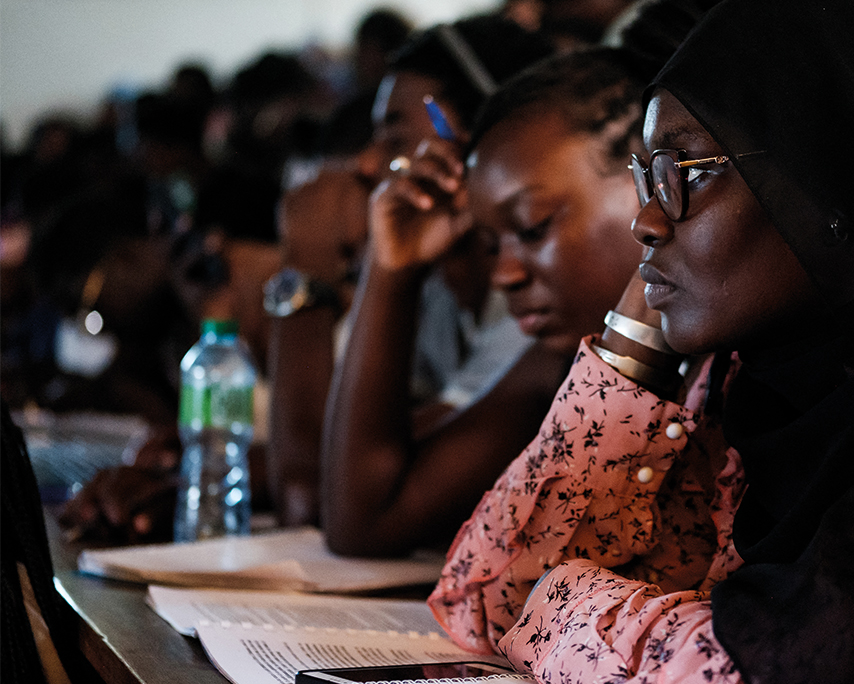World Youth Skills Day
AI and digital skills without thinking lead Africa’s youth nowhere
The theme for this year’s World Youth Skills Day, “Youth empowerment through AI and digital skills”, is both timely and highly relevant for this decade. However, as Africa races to equip its youth with AI and digital skills, there is a growing temptation to leapfrog foundational learning. This impulse, while understandable, is risky.
As we invest in AI and digital training, we must not lose sight of the critical role of basic education—the very foundation that nurtures critical thinking, sound judgment, and ethical discernment. Without it, young people may acquire tools but lack the wisdom to use them meaningfully or responsibly in innovation and creation.
Foundational learning is a prerequisite for innovation
Across many African countries, governments and development partners are investing in digital transformation strategies, including introducing coding in schools, rolling out ICT hubs, and launching AI-driven pilot programmes. These are exciting and necessary initiatives.
However, there is a crucial gap: foundational literacy, numeracy, and cognitive skills remain alarmingly low in many regions. According to the World Bank, in Sub-Saharan Africa, 9 out of 10 children cannot read and understand a simple sentence by age 10.
Without these core capabilities, AI and digital training risk becoming exclusive or superficial, benefiting only a small urban elite. Digital literacy must build on basic education, not bypass it. When a young person understands how to reason, analyse, and question, they are better equipped to innovate responsibly, not just use tools mechanically.
Critical thinking as a guardrail for digital creativity
Africa’s youth are already digital pioneers—creating viral content, building online businesses, and solving community problems with low-cost tech. However, exposure to digital tools is not enough. To truly lead in the age of AI, young Africans need discernment, not just technical skill.
With social media algorithms, misinformation, and the rise of AI-generated content, the ability to evaluate sources, question motives, and verify information is more important than ever. Critical thinking—the product of strong basic education—is what empowers youth to create consciously, challenge biases in algorithms, and build tech that reflects African values and needs.
Including rural and marginalised communities
In rural and underserved communities, where electricity and internet access are still irregular, pushing AI or robotics programmes can sometimes feel tone-deaf or extractive. What these communities urgently need is quality basic education—in their language, with relevant content, and grounded in their reality.
Equipping these youth with digital tools before they have mastered basic reading, reasoning, or arithmetic risks deepening the digital divide, not closing it. For last-mile youth, basic education is the real technology, the tool that unlocks future opportunities.
Foundational skills for a future-proof workforce
Employers across the continent are seeking workers who can adapt to change, learn continuously, and solve complex problems. AI and automation will eliminate routine jobs, but they will amplify the value of human judgment, emotional intelligence, and ethical reasoning.
Africa’s future workforce will not thrive solely on technical skills. It needs people who can think, not just click—and begins with how we educate children today. Prioritising foundational learning ensures that digital skills are absorbed meaningfully, applied ethically, and scaled sustainably.
Ultimately, African societies are grounded in philosophies such as ubuntu and harambee, emphasising community, interconnectedness, and shared responsibility. As we introduce AI into our classrooms and communities, we must ensure that young people not only build tools but also reflect on the kind of future those tools create. As basic education teaches language, civic engagement, and ethics, it helps youth navigate the moral and cultural implications of innovation.
We must not confuse exposure with empowerment. True empowerment is when a young person can read critically, ask tough questions, weigh ethical choices, and create solutions rooted in both knowledge and wisdom. That is the Africa we should be building—one where AI is not just adopted but reimagined through an African lens.



